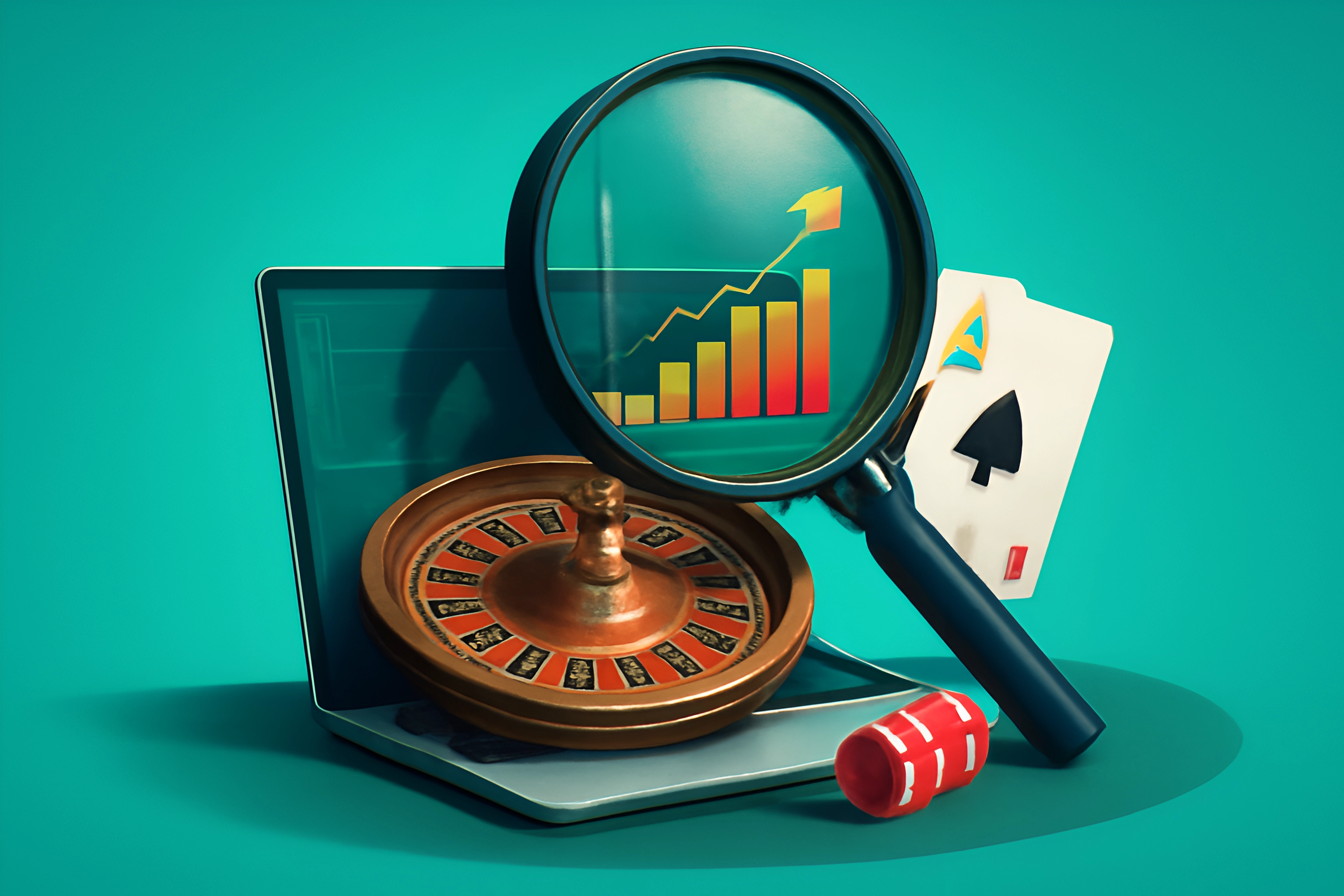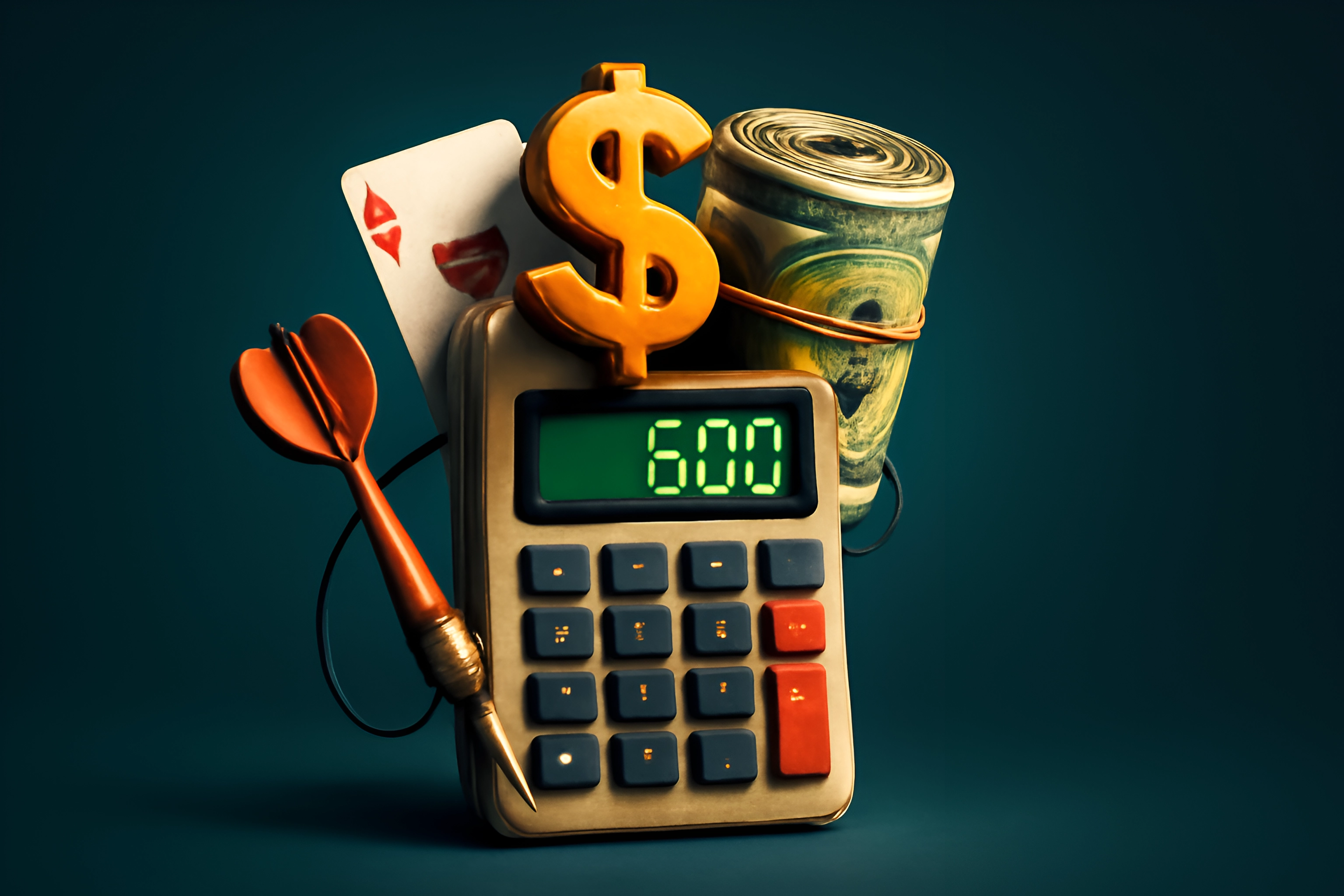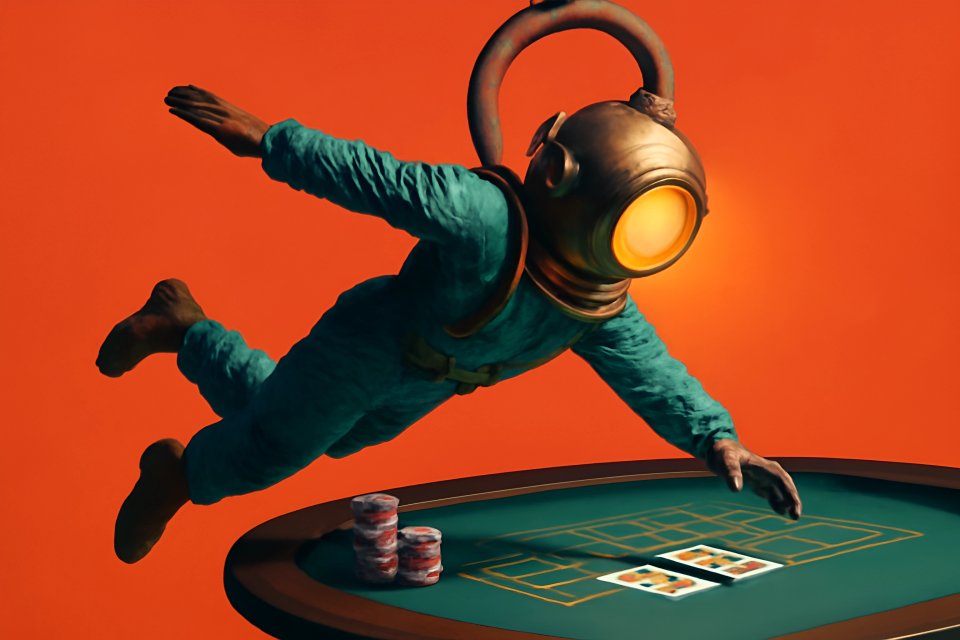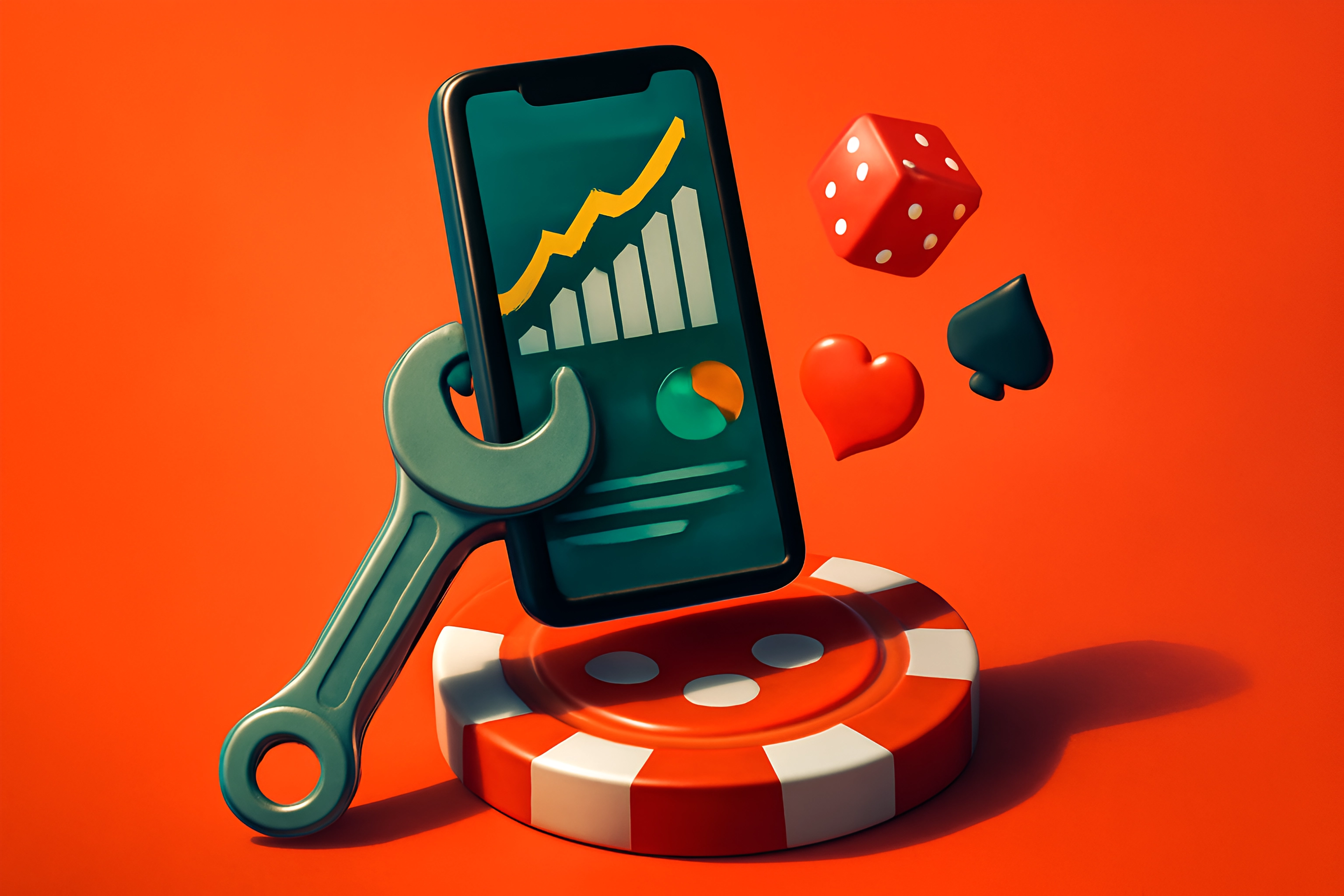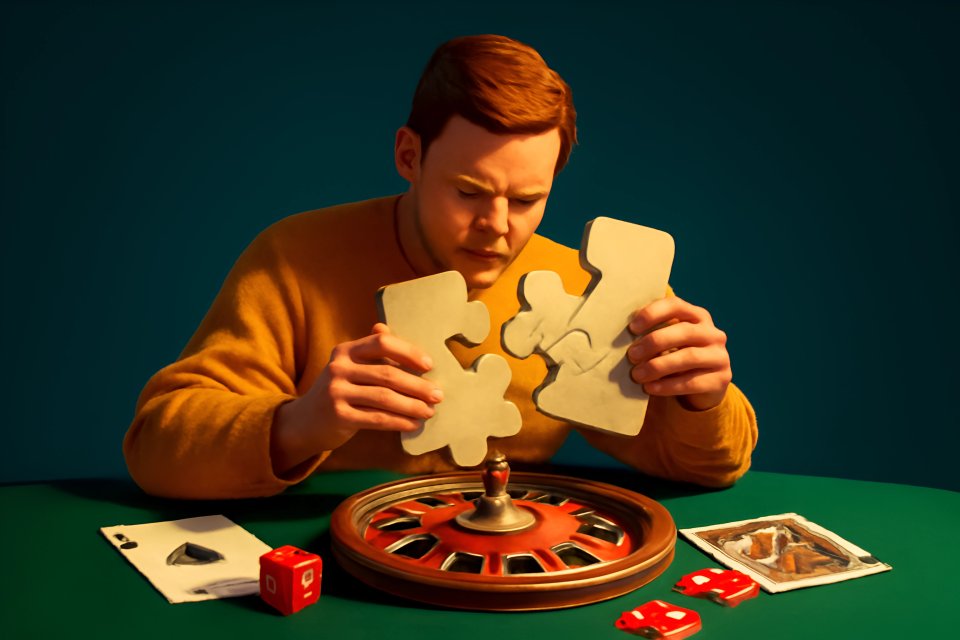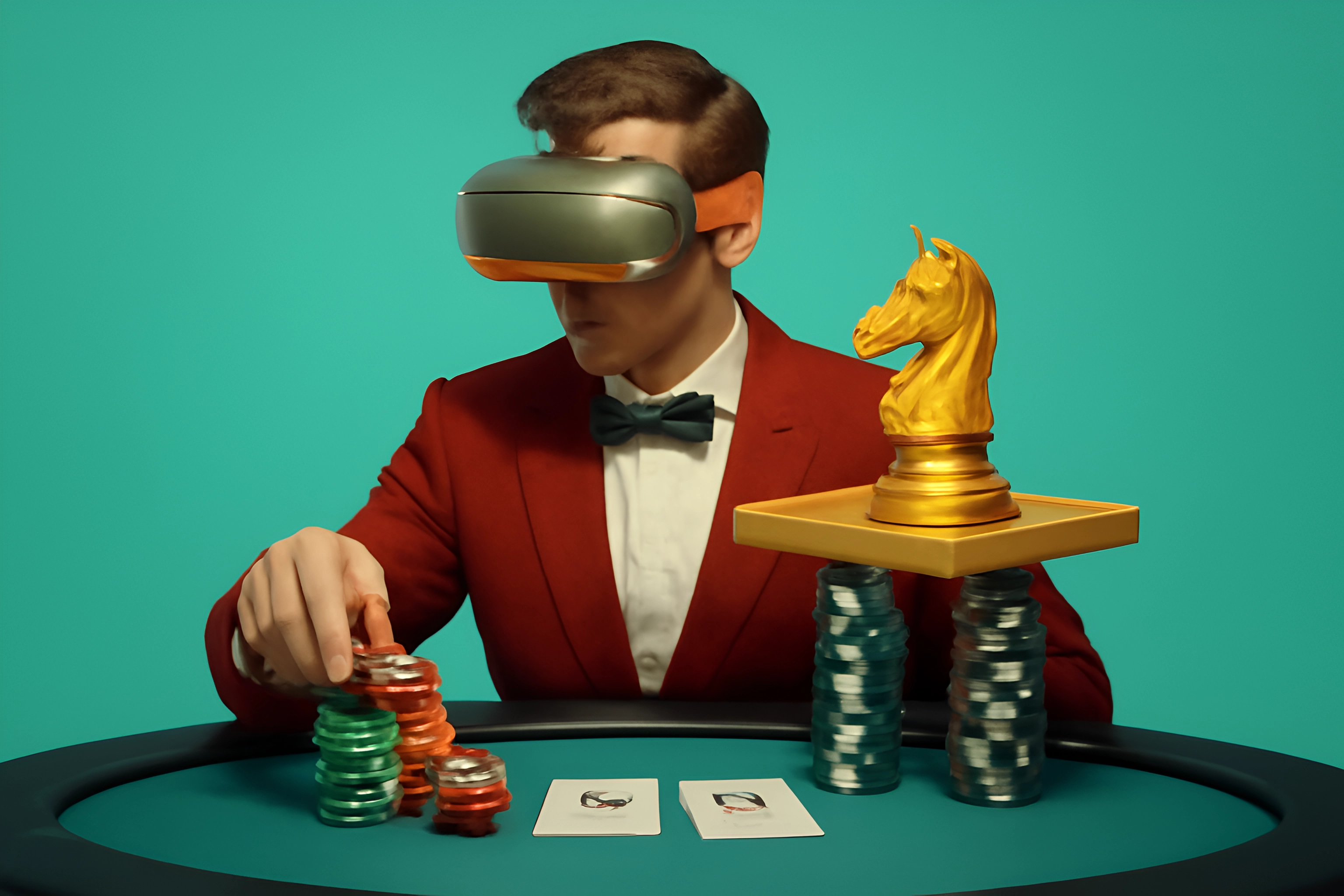
You've felt the pulse of the live casino, haven't you? You've mastered the basics of live dealer games, enjoyed the immersive thrill of real-time play, the banter with professional dealers, the spin of a real wheel. But now, a new hunger stirs. You're ready to elevate your game, to play smarter, not just harder, and to unlock a deeper level of strategic engagement.
At The Casino Nest, we're not just about showing you the games; we're committed to empowering you with the strategic wisdom to navigate them with confidence and skill. This isn't another rehash of "how to play Blackjack 101." Forget that. We're diving deep into the sophisticated tactics that separate the seasoned player from the hopeful amateur. We'll delve into advanced betting strategies for live dealer games that go far beyond common advice, focusing on nuanced betting systems, cutting-edge bankroll management, potent psychological tactics, and game-specific insights tailored for the dynamic live environment. The unique challenge of live dealer games – the real-time decisions, the human element, the distinct game flow – is precisely why these advanced strategies become not just relevant, but essential for those seeking to truly master the art of the play.
Recapping the Foundation: Why Basic Tips Aren't Enough for Advanced Play
Sure, you know the drill. Understand the rules. Pick reputable online casinos. Manage your bankroll with basic discipline. Grasp the concept of Return to Player (RTP). These are the building blocks, the price of entry into the world of intelligent casino play, and they've served you well to a point.
But let's be honest. You've hit a plateau, haven't you? That foundational knowledge, while absolutely essential, can only take you so far. It’s like knowing the alphabet but not yet writing poetry. As the source material highlights, seasoned players often face a performance plateau without advanced tactics because static rules simply ignore the crucial real-time variables inherent in live dealer games.
The live dealer difference is where the game truly changes. The pace set by a human dealer, the subtle interactions, the sometimes-limited decision windows – these factors demand a far more sophisticated approach than you'd employ in standard Random Number Generator (RNG) games. The live environment’s inherent unpredictability calls for adaptive systems and a deeper understanding that transcends foundational advice, pushing you towards the game-specific optimizations we're about to explore.
Sophisticated Live Casino Strategies: Game-Specific Deep Dives
Before we plunge into the heart of these strategies, remember this: no system, no matter how advanced, can guarantee wins in games of chance. The house always retains an edge. However, what these sophisticated live casino strategies can do is optimize your decision-making, help you manage variance more effectively, and ultimately, enhance your control and enjoyment of the game. Think of them as sharpening your sword for a more skillful engagement.
Live Blackjack: Beyond Basic Strategy
You think you know Blackjack? Basic strategy is just the beginning. To truly gain an edge, or at least minimize the house's, you need to look deeper, especially in the live dealer arena where the game breathes.
Card Counting in Live Dealer Blackjack
Is card counting a myth online? Not entirely, but it’s a different beast. While continuous shuffling machines (CSMs) are common, not all live tables use them after every hand, and some games offer decent deck penetration. Simplified systems like the Hi-Lo count, detailed in Casino.org’s card counting guide, assign values like +1 for low cards (2-6) and -1 for high cards (10-Ace), helping you gauge when the remaining deck is rich in tens. When the count is high, it’s time to strategically increase your bets – a technique known as bet spreading – to capitalize on favorable situations.
However, casinos are vigilant. Obvious card counters, even online, can be restricted or barred. The key is subtlety and understanding the ethical lines; you're using skill, not cheating, but casinos protect their business. According to insights from Casino.org on blackjack deviation charts, applying such deviations correctly can chip away at the house edge, sometimes by as much as 0.5%.
Advanced Strategy Deviations
Basic strategy charts are your bedrock, but advanced play means knowing when to chisel away at that foundation. Specific live dealer rules, like whether the dealer stands on a soft 17 or hits, can shift optimal plays. For instance, Casino.org's deviation analysis reveals that standing on a hard 16 against a dealer's 9 when the count is sufficiently negative can be a better play than basic strategy suggests, minimizing losses by playing for the dealer bust.
Insurance is another area. Typically a sucker bet, it can become viable at very high true counts (e.g., +3 or higher), where the probability of the dealer having a natural blackjack significantly increases. Similarly, surrendering a hard 16 against a dealer's 9, 10, or Ace in high positive counts can be a smart bankroll-preserving move. These aren't wild guesses; they are calculated deviations based on the shifting composition of the deck.
Side Bet Analysis
Live dealer tables often glitter with enticing side bets – Perfect Pairs, 21+3, and more. They promise big payouts and add a dash of excitement. But here’s the hard truth: most are statistical traps. For example, the Perfect Pair side bet, while tempting, often carries an RTP well below 90%, as noted by Casino.org. Your advanced approach demands scrutinizing these bets for their actual value, not just their surface appeal, and usually, that means steering clear to protect your hard-won advantage from the main game.
Live Roulette: Calculated Risks & Pattern Recognition (with caveats)
Roulette is often seen as pure chance, but advanced bettors find ways to apply structure and calculation to their wagers, especially with the visual cues of a live wheel and layout. Can you truly beat the wheel? No, the house edge is constant. But can you bet smarter? Absolutely.
Sector Betting & Neighbor Bets
Forget just red or black, odd or even. Advanced roulette players utilize the racetrack to make sophisticated wagers. Sector bets like Voisins du Zéro (neighbors of zero), which covers 17 numbers near the green zero, or Tiers du Cylindre (a third of the wheel), covering 12 numbers opposite zero, allow for broader coverage. As Wizard of Odds explains sector bets, Voisins du Zéro still faces the standard European Roulette house edge of 2.7%, despite its wide coverage.
Neighbor bets, which involve betting on a specific number and the two numbers on either side of it on the wheel (a five-number cluster), are another tool. PlayOJO’s neighbor bet analysis highlights that these bets offer a 13.5% win probability on a European wheel, again, while maintaining that persistent 2.7% house edge. These bets aren't about changing the odds but about structuring your play to capitalize on perceived streaks or cover specific wheel sections.
Identifying Biases (Rare Online, but Understand the Concept)
In the old days of physical casinos, eagle-eyed players sometimes sought out "biased wheels" – wheels with slight imperfections leading to certain numbers or sectors hitting more frequently. Modern live dealer casino wheels are precision-engineered and regularly tested, making significant biases exceptionally rare, almost mythical. While you might track "hot" or "cold" numbers using the provided statistics boards, understand this is more about managing your betting patterns for enjoyment than exploiting a genuine, persistent physical bias. The concept is interesting, but practical application online is minimal.
Advanced Bet Progression Systems (with strong disclaimers)
You've likely heard of the Martingale system (doubling your bet after every loss) – and hopefully, you know its dangers. Advanced players might explore more nuanced progression systems, but only with a crystal-clear understanding of the risks and the unshakeable house edge. Systems like the Fibonacci (betting the next number in the sequence after a loss), Labouchère (creating a line of numbers to dictate bet size), or D'Alembert (increasing bets by one unit after a loss, decreasing by one after a win) offer different risk profiles. For instance, Casino.org's strategy guide notes that the D’Alembert system marginally reduces risk compared to the Martingale but still ultimately succumbs to table limits or a devastating losing streak. These are tools for managing your betting amounts within a session, not for overcoming the game's mathematics.
Live Baccarat: Riding Streaks & Understanding Probabilities
Baccarat, with its elegant simplicity, often attracts high rollers and strategic thinkers. Beyond the basic Banker/Player/Tie bets, there are layers of understanding that can refine your approach, particularly in interpreting the game's flow.
Advanced Pattern Spotting (The Gambler's Fallacy vs. Short-Term Trends)
Live Baccarat tables are famous for their detailed electronic scoreboards: the Big Road, Bead Plate, Big Eye Boy, Small Road, Cockroach Pig. These "roads" track the history of Banker and Player wins, often revealing apparent patterns and streaks. Advanced players study these, not to predict the future (each hand is largely independent, beware the Gambler's Fallacy!), but to make informed decisions about whether to follow a streak or bet against it, understanding these are short-term trends. As Wizard of Odds discusses baccarat history displays, their primary utility is tracking shoe history, not forecasting.
Some sophisticated players even explore baccarat card counting. Wizard of Odds on baccarat card counting validates that certain systems can identify slight biases. For example, a Level 3 system might assign point values like -6 for 6s and +6 for 4s. Betting on Player when the count is very low (e.g., ≤ -15) can slightly reduce the house edge to around 1.05% from its usual 1.24%, while betting Banker at high counts can achieve an edge closer to 0.99% (before commission).
Side Bet Evaluation
Like Blackjack, Live Baccarat often features tempting side bets such as Player Pair, Banker Pair, or Perfect Pair. While they offer higher payouts, their house edge is typically much larger. For instance, Wizard of Odds' baccarat basics indicates that Pair bets, often paying 11:1, carry a substantial house edge of around 10.36%. An advanced player knows to weigh the allure of a big payout against the statistical reality, usually finding these bets are best left untouched for serious, strategic play.
Betting on Banker vs. Player
The Banker bet statistically has a slightly higher chance of winning than the Player bet. This is why winning Banker bets are subject to a commission (usually 5%). Understanding the impact of this commission is crucial. Even with the commission, the Banker bet often presents a marginally lower house edge than the Player bet. Advanced strategy involves consistently recognizing this slight mathematical advantage and not being swayed by emotional decisions or misleading short-term patterns that contradict this fundamental probability.
Live Poker Variants (e.g., Casino Hold'em, Three Card Poker)
Live dealer poker variants pit you against the house, not other players, but strategic depth remains. Moving beyond simple play/fold decisions requires a grasp of odds and optimal responses to the dealer's hand.
Optimal Play Decisions
In games like Casino Hold'em or Ultimate Texas Hold'em (UTH), every decision point matters. For UTH, Wizard of Odds' "Wizard Strategy" provides clear guidelines, such as making a 4x pre-flop raise with strong hands like two-pair or better, and a 2x raise with hidden pairs. It also outlines folding thresholds, for example, when the dealer has more than 20 outs to beat you, preventing costly calls.
For Casino Hold'em, PokerNews' guide on Casino Hold'em suggests that optimal play involves folding weak starting hands pre-flop and typically raising with the top 15% of hands. Even simplified pot odds calculations (e.g., understanding if calling a bet is mathematically justified by the pot size and your chances of winning) become vital during the brief decision windows offered by live dealers. This requires quick mental math and a solid understanding of hand strengths.
Reading the Game (Subtle Cues)
While you can't read a live dealer's mind like you might try with a poker opponent, observing the game flow and any discernible (though usually negligible) dealer tendencies can subtly inform your play. Are bets typically aggressive at the table? Does the game feel fast or slow? More practically, adapting your bet sizes based on the strength of your hand relative to the board and the dealer's upcard is a core skill. This isn't about superstition, but about making mathematically sound adjustments.
Side Bets/Bonus Bets
Poker variants are also rife with side bets, like the Trips bet in UTH or the AA Bonus in Casino Hold'em. As with other games, these often carry a less favorable RTP. The Trips bet in UTH, for example, averages around a 94% RTP according to Wizard of Odds, while the AA Bonus in Casino Hold'em rarely offers an RTP above 92%, as noted by PokerNews. Strategic consideration means evaluating if the potential payout justifies the higher house edge, and for advanced players focused on optimal EV, these are often best avoided or played only with "fun money."
Advanced Bankroll Management for Live Dealers: Protecting and Growing Your Stake
Your skill at the tables means nothing if your bankroll vanishes like morning mist. Bankroll management for live dealers isn't just about setting a budget; it's a dynamic, strategic discipline crucial for weathering variance and playing the long game. Want to stay in action and give your strategies a chance to work? Then master your money.
Session-Based Bankroll Allocation
Think of your total gambling bankroll not as one giant pot, but as a war chest to be divided. Sports Illustrated's advice on bankroll management emphasizes dividing your total stake into numerous smaller, manageable session funds – perhaps 20 or more. This compartmentalization prevents one disastrous session from wiping you out, ensuring you have the ammunition to return another day. Each time you sit down at a live dealer table, you're playing only with that session's allocated funds, creating a crucial psychological and financial buffer.
Dynamic Stop-Loss and Win-Goal Strategies
Rigid limits can be counterproductive. Instead, embrace dynamic stop-losses and win-goals. A stop-loss isn't just a number; it's a commitment. For example, deciding to walk away if your session bankroll depletes by 50% can prevent the dreaded "tilt" and chasing losses, a common pitfall highlighted by Sports Illustrated. Conversely, setting a win goal – say, aiming to increase your session stake by 50% and then taking a break or pocketing the profit – helps lock in gains and prevents greed from turning a winning session into a losing one. These should be flexible and adapt to game conditions and your own emotional state.
Percentage Betting
Instead of flat betting the same amount on every hand, consider percentage betting. This means sizing your bets as a percentage of your current session bankroll, typically between 1% and 5%. If your bankroll grows, your bets incrementally increase, capitalizing on winning streaks. If it shrinks, your bets decrease, protecting your remaining capital. This method, also discussed in the context of general gambling by Sports Illustrated, naturally adjusts to variance and helps prolong your playing time.
Understanding and Managing Variance in Live Games
Live dealer games, with their human dealers and physical equipment, often play out at a slower pace than their RNG counterparts. This slower pace can mean that variance – the natural ups and downs of gambling – feels more pronounced over a shorter number of hands or spins. Wizard of Odds' insights on blackjack variance reveal that live blackjack's covariance (a statistical measure of how two variables move together) can be around 0.487. This suggests that players might need bankrolls up to 30% larger than for RNG games to comfortably absorb these swings. Understanding this helps you set realistic expectations and prepare an adequate bankroll. For more on managing variance, the principles discussed in our guide on Unlocking the Secrets of Slot Volatility can offer valuable parallels.
Tiered Betting Systems
For truly advanced players, tiered betting systems can offer another layer of bankroll control. This involves establishing different betting unit sizes based on the overall health of your bankroll or specific triggers within a game (like a high card count in Blackjack). For example, you might have a standard unit when your bankroll is stable, a reduced unit if you hit a certain loss threshold, and an increased unit (used cautiously) during particularly advantageous situations. This requires discipline and a clear plan, preventing emotional bet sizing.
The Psychological Edge: Real-Time Decision Making & Emotional Control
The flashing lights, the real-time interaction, the pressure of the clock – live dealer games are a mental battlefield as much as a mathematical one. Gaining a psychological edge means mastering your own emotions and making clear-headed decisions, even when the chips are down or soaring high. This is where true casino warriors are forged.
Reading the "Virtual" Table
While you can't see physical tells on other players in most online live dealer setups, you can sometimes observe their betting patterns if visible. Are they aggressive? Timid? Does one player seem to be on a "hot streak" (understanding this is likely just variance)? More importantly, observe the dealer's demeanor – professional and neutral, of course, but sometimes the pace or flow they establish can subtly influence the table's atmosphere. Don't over-interpret, but be aware of the overall "feel" of the game, using it to ground your own strategic pace.
Maintaining Composure & Avoiding Tilt
Tilt – that state of emotional frustration or recklessness that leads to poor decisions – is the nemesis of every gambler. Advanced players develop robust defenses. Deuces Cracked’s tilt management framework offers powerful techniques, such as identifying personal tilt triggers (bad beats, a string of losses, distractions) and employing countermeasures like the 4-2-6 breathing technique (inhale for 4, hold for 2, exhale for 6) to restore calm and rationality. Losing your cool is like handing your money directly to the casino; maintaining composure is paramount.
Strategic Breaks
Marathon sessions are a recipe for mental fatigue and poor judgment. Advanced players know the immense value of strategic breaks. These aren't just arbitrary time-outs; they are scheduled intervals or reactive pauses triggered by your mental state or adverse game flow. Feeling frustrated? Step away. Hit your win goal or stop-loss? Step away. Taking even a five-minute break to clear your head, stretch, or grab a glass of water can reset your focus and prevent costly unforced errors.
Adapting to Game Pace
Live dealer games have a built-in timer for decisions. This pressure can fluster inexperienced players into making rushed, suboptimal choices. Part of the psychological edge is becoming comfortable with this pace, even using it to your advantage by being prepared. Practicing decision-making under time constraints, perhaps using online trainers or even just mentally running through scenarios, can build this crucial composure. As suggested by Deuces Cracked, time-pressure drills, like setting a 10-second decision window in practice games, can significantly build your ability to think clearly when the live clock is ticking.
Leveraging (or Ignoring) Chat & Social Interaction
Many live dealer games feature a chat function, allowing interaction with the dealer and other players. This can be a fun, social aspect, but it can also be a distraction. An advanced player makes a conscious choice: either use the chat minimally to maintain a pleasant atmosphere (perhaps a "ty" to the dealer) or ignore it completely to maintain laser focus on their strategy. Letting chat banter or other players' comments (especially about "bad plays") affect your decisions is a rookie mistake. Your game, your strategy, your focus.
Choosing the Right Live Dealer Environment for Advanced Play
Not all live dealer tables are created equal, especially when you're looking to deploy sophisticated strategies. The virtual room you choose can significantly impact your ability to play optimally and manage your bankroll effectively. It’s about finding the arena that best suits your advanced combat style.
Table Selection
This is your first strategic decision before a single bet is placed. Consider betting limits: ensure they align with your session bankroll and percentage betting strategy. A $5 minimum table is very different from a $100 minimum when your session stake is $500. Also, think about table population. A full table means slower gameplay, giving you more time to think (and potentially observe more hands if counting cards), while an emptier table means faster action, which can be good or bad depending on your goals and mental stamina. Crucially, seek out specific game variants that offer better rules or RTP; for example, European Roulette (single zero) is always preferable to American Roulette (double zero), and Blackjack tables that pay 3:2 for a natural (not 6:5) are a must.
Software Provider Nuances
Different live casino software providers – like Evolution, Playtech, or Pragmatic Play Live – offer varying user interfaces, available in-game statistics, camera angles, and even unique side bets or game variants. Casino.org ranks Evolution Gaming highly for features like multi-angle cameras and a customizable UI, which can be critical for focused strategy execution. Some providers might offer more detailed historical data for Roulette or Baccarat, which can be useful (with caveats about predictive value). Explore different providers to find the interface and features that best support your strategic approach. For instance, Evolution's Lightning Blackjack, with its random multipliers (2x-25x), demands specific rule adjustments like standing on soft 17 and avoiding doubles after splits to mitigate the impact of the 100% ante fee, a nuance discussed on forums like Wizard of Vegas.
Identifying "Hot" or "Cold" Tables/Dealers (with a large grain of salt)
You'll hear players talk about "hot" dealers or "cold" tables. From a purely statistical standpoint, this is mostly gambler's fallacy; past independent events don't influence future ones in games of chance. However, the psychology of feeling like a table is running a certain way can impact player behavior. An advanced player acknowledges the psychological aspect but focuses on objective factors: table limits, game rules, dealer professionalism, and a comfortable playing environment, rather than chasing elusive hot streaks dictated by superstition. If a table feels wrong or unlucky to you, by all means, switch – but base your core strategic decisions on mathematics and sound judgment, not vibes. For insights into selecting platforms that might better suit your strategic needs, consider the factors discussed in our article Comparing Crypto Casinos: How Decentralized Platforms Stack Up Against Traditional Casinos.
Tools & Resources for the Advanced Live Dealer Player (Ethical Use)
While your mind is your primary weapon, a few well-chosen, ethically used tools and resources can support your advanced live dealer gameplay. Think of these as your strategic toolkit, helping you make informed decisions and understand probabilities more clearly. The key is ethical use – anything that automates play or violates a casino's terms and conditions is off-limits and counterproductive to fair play.
Strategy Charts (e.g., for Blackjack)
For games like Blackjack, having a basic strategy chart readily available is fundamental, even for advanced players. When you start incorporating deviations based on card counting, these charts become even more critical as a quick reference to ensure you're making the mathematically correct play under pressure. You can keep a digital version open on a separate screen or a discreet physical card. This isn't cheating; it's using established mathematical knowledge to play optimally.
Odds Calculators (for specific scenarios)
Understanding the true odds and probabilities in various game scenarios can be enlightening. While you won't be punching numbers into a calculator mid-hand for most bets, using odds calculators offline to study specific situations can deepen your understanding. For example, knowing the precise probability of hitting your flush draw in Casino Hold'em or the house edge on a specific Baccarat side bet (e.g., an 11:1 payout for a pair bet in Baccarat equates to roughly a 7.47% probability of occurring, as can be derived from tools like those found on Wizard of Odds) reinforces strategic choices. This knowledge, once internalized, informs your in-game intuition.
Game Statistics Provided by Platforms
Most live dealer platforms provide statistics like recent winning numbers in Roulette, or the percentage of Banker/Player/Tie outcomes in Baccarat. Advanced players use these statistics with caution. They can be helpful for spotting very short-term trends or for managing some betting systems that rely on historical outcomes (like some Labouchère approaches). However, always remember the gambler's fallacy: the Roulette wheel has no memory. Wizard of Odds' blackjack trainer can even offer real-time deviation alerts in a practice environment, such as "Hit 16 vs. dealer 7 at +3 count," which is excellent for simulating and learning advanced plays before hitting the live tables.
It's crucial to reiterate: never use any tools or software that automate betting decisions for you in live games or that interact directly with the casino software in a way that violates their Terms and Conditions. The goal is to enhance your skill and understanding, not to find illicit shortcuts.
